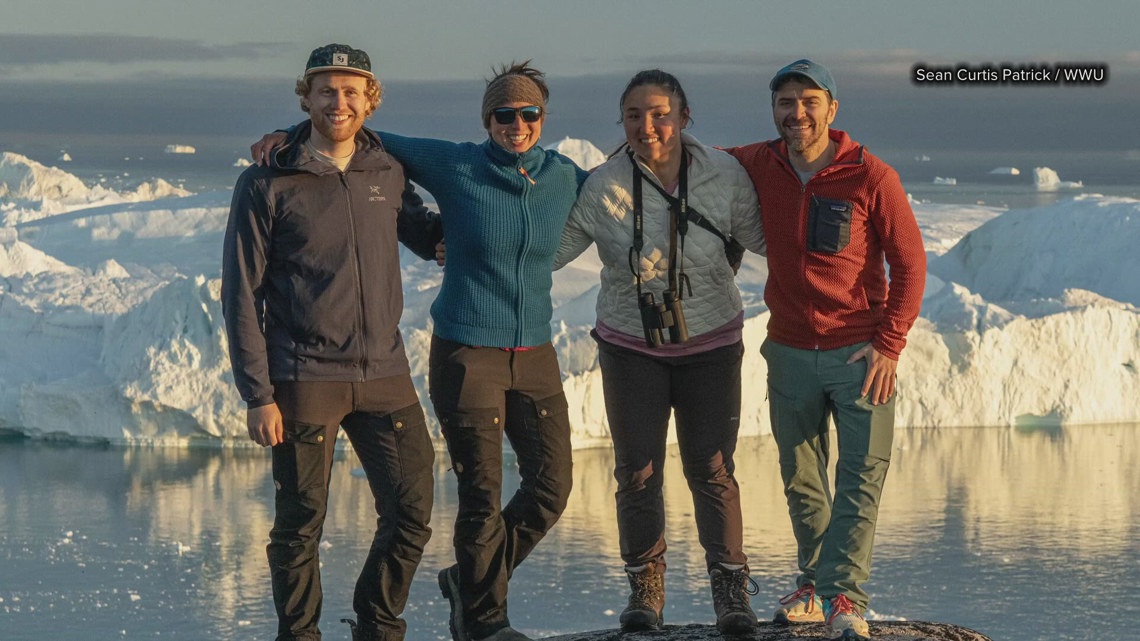Researchers from Western Washington University study dark zones on the Greenland ice sheet to understand sea level rise.
BELLINGHAM, Wash. — A team of researchers from Western Washington University (WWU) spent the past week in Greenland, conducting climate research focused on the Greenland ice sheet, the world’s second largest after Antarctica and nearly three times the size of Texas.
Associate Professor of Environmental Science Alia Khan, who led the expedition, emphasized the global significance of their work.
“I think this work is important, due to the sheer volume of the Greenland ice sheet and how it really does have a global impact,” Khan said.
The research team investigated how the Greenland ice sheet, one of the largest contributors to sea level rise, is affected by “dark zones” forming on its surface.
“We are trying to understand how the darkening of the albedo across this region of the dark zone of the Greenland ice sheet, how that is contributing to sea level rise,” Khan explained.
According to Khan, these dark zones are caused in part by black carbon pollution from wildfires, mostly burning in Canada. The fires send smoke and black carbon particles into the atmosphere, and winds transport the pollution thousands of miles, depositing it on Greenland’s ice.
“I hypothesize that by the end of the century we’ll see a pretty large increase in the dark zones across the Greenland ice sheet,” she said.
These dark particles lower the surface’s reflectivity, causing the ice to absorb more heat from the sun, accelerating melt and contributing to rising global sea levels. The consequences could be significant.
“Global sea level rise has implications for infrastructure, economies, development, safety,” Khan said. She noted that even a few millimeters of sea level rise can have a drastic impact on coastal communities, including some in Washington state.
Data from the National Snow and Ice Data Center indicate that if the entire Greenland ice sheet melted, sea levels would rise by about 24 feet.
Khan and the team are returning from their weeklong research trip with new data and samples. They plan to assess their findings in the coming months to improve future projections of sea level rise. The team aims to release a final report next year.
Khan and her team’s exploration was funded through the National Science Foundation.
“Once we have results to share, I would love to reconnect and let you know what we have found here,” Khan said.
